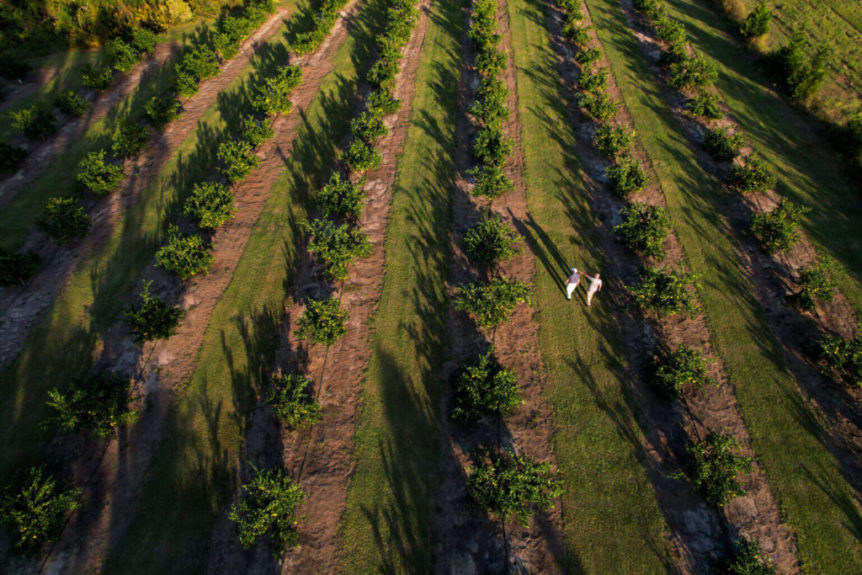
Georgia citrus growers are still in the honeymoon phase of production with regards to disease, said Jonathan Oliver, University of Georgia (UGA) assistant professor and small fruits pathologist.
While established groves in Florida have had to deal with disease buildup for decades, disease has yet to be problematic for South Georgia citrus production. But that could be changing.
“With respect to citrus production, I say we’re in the honeymoon phase just because a lot of our groves are fairly new. They’re fairly young and haven’t had a lot of time to build up some of the disease pressures that you can eventually see in citrus production,” Oliver said during the Southeast Citrus Update in Lyons, Georgia on July 24. “Generally, most of our growers haven’t had major disease issues to this point, but we are starting to see some of those disease issues crop up.”
The two bacterial diseases of concern are citrus greening and citrus canker.
Citrus greening is a major concern based on the widespread loss it has caused in the Florida citrus industry over the last 20 years. It has been spotted in a few locations in Georgia, including a few commercial groves. Growers should monitor for symptoms while also scouting for the vector, the Asian citrus psyllid, a small insect that can transmit bacteria.
Citrus canker has been found in a couple of isolated locations in Georgia. Oliver doesn’t think that it is widespread yet. Canker can cause lesions on the leaves and the fruit.
Growers should be mindful about when to monitor and protect against both diseases.
“For citrus greening, the psyllid populations can build throughout the year. Starting as early as the first leaf flush and continuing through the fall, you need to be regularly monitoring your groves for the presence of the vector,” Oliver said. “Canker is more likely to spread when you have windblown rain and thunderstorms in the summer, but it can spread within a grove anytime. That summer period when you have these popup thunderstorms is when I would think about the spread of canker.”
By Clint Thompson and Dale Sandlin










